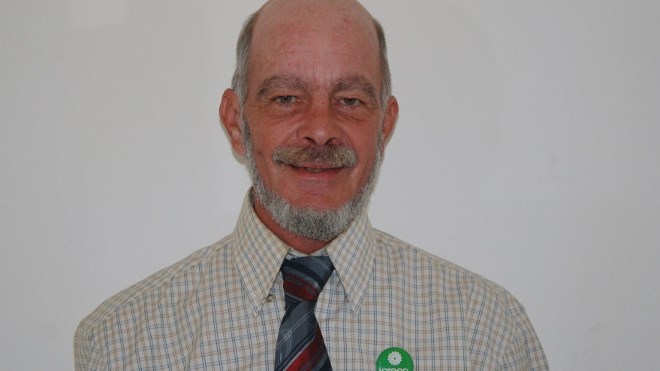The world population is expected to rise to 9.6 billion people by 2050, as reported by the United Nations news centre.
Feeding 9.6 billion people by 2050 is going to be a huge challenge because of a shortage of water for irrigation, depleted fish stocks and the loss of farmland resulting from urban sprawl and desertification.
Global warming and climate change will cause extreme weather events that have a devastating effect on whole farming regions. Just this past summer, our western farming communities experienced extreme drought that will lead to higher prices for grain to feed livestock.
Canadians used to a Western-style high-meat diet will pay much more at the grocery store. Agriculture is one of the major sources of carbon dioxide, the primary greenhouse gas that is causing the Earth’s climate to change. However, we simply can't cut back on agriculture in the face of the exploding global population. Other solutions are needed.
A technology that lets us increase agricultural production while cutting emissions is the battery-powered electric tractor. New full-sized battery-powered electric busses have shown significant operational cost reductions. It stands to reason that the same would be true for electric-powered tractors.
In the British Isles, it is estimated that battery-powered buses would cost about $0.50 per kilometre or around $0.75 per mile, versus diesel-powered buses at around $3.35 per kilometre or $5 per mile. Electric-powered vehicles would also have lower maintenance costs.
One of the reasons that full-electric cars, buses, vans and trucks have been slow to be adopted is something called “range anxiety.” People are worried about not getting home from long trips. For electric vehicles, the need to save space and weight limits the size of batteries and therefore the vehicle’s range.
For electric battery powered tractors range anxiety isn’t a problem. Tractors need reasonable weight for traction and typically are not range-bound on a farm. With new innovative battery charging systems, GPS-guided controls and the use of a battery-charging shuttle, if needed, electric tractors can work 24/7 if required.
Developing countries still use a lot of methane-emitting animals plus human muscle power to grow food, but they are quickly moving towards more mechanized agricultural practices.
Next, we need to urgently develop a simple, affordable and sustainable way that everyone can power global agriculture activities – one which relies on sunshine and other forms of renewable energy to avoid the oil dependency trap.
The sagging activity in our manufacturing sector could be boosted if the federal government was to provide small businesses with incentives for start-ups and expansion, and for manufacturing renewable energy components and installations.
This would provide excellent, and well-paying, jobs for our youth and other skilled craftsmen, and help shift employment from the sunset fossil fuel sector by creating skilled jobs for the emerging green economy.
The technology exists to design and build electric tractors, providing more relief to our manufacturing sector. Entrepreneurs are already thinking ahead, and video of electric tractors in action have already been posted on YouTube. We can do this if we have the will to make some changes.
The Green Party of Canada’s platform is calling for the $1-billion-per-year Green Technology Commercialization fund – essentially, grants for research and development, accessible by small businesses and the scientific research community. This fund will energize small businesses that want to lead the way in creating the technology and jobs which Canada needs as we switch to a sustainable economy.
The fund would also provide the cash needed by researchers to explore and develop new and existing renewable energy sources to power farming transport, household use and ultimately other forms of transportation.
Making the switch to electric vehicles in the agricultural sector will reduce greenhouse gas emissions, while promoting resiliency in our agricultural sector. New electric technologies will make farming more efficient, reduce costs, promote productivity and ultimately provide more food to feed the hungry mouths of 9.6 billion people.
The time for action is now, as we can’t afford to wait any longer to begin the transition to a low-carbon economy. On Oct. 19, vote for the Green Party of Canada and support your local candidates in Sudbury and Nickel Belt.
Stuart McCall is the Green Party of Canada candidate for Nickel Belt.
Join Sudbury.com+
- Messages
- Post a Listing
- Your Listings
- Your Profile
- Your Subscriptions
- Your Likes
- Your Business
- Support Local News
- Payment History
Sudbury.com+ members
Already a +member?
Not a +member?
Sign up for a Sudbury.com+ account for instant access to upcoming contests, local offers, auctions and so much more.
